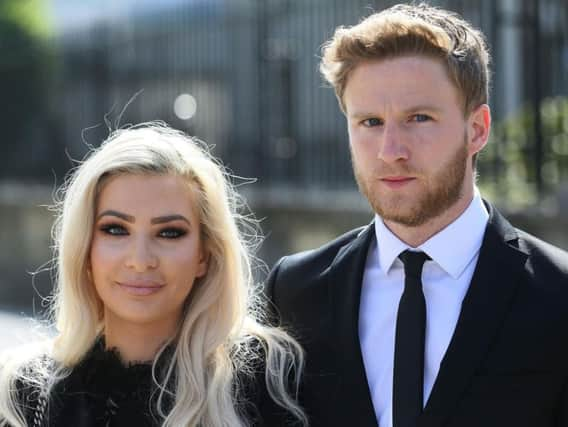Footballer and glamour model appeal over humanist wedding


A lawyer for Laura Lacole, 27, and Leeds and Republic of Ireland star Eunan O’Kane, 26, said the law in Northern Ireland offered more generous treatment to people of faith.
Under current law, Ms Lacole and Mr O’Kane’s planned humanist wedding in the region next month will not be recognised in law.
Advertisement
Hide AdAdvertisement
Hide AdFor such recognition they would need to have a separate civil ceremony.
The couple were at Belfast High Court to challenge the status quo.
Opening the case in front of Mr Justice Adrian Colton, their lawyer Steven McQuitty said all they wanted was the same protection afforded to those of different belief systems.
“Religious people from Pagans to Free Presbyterians and everything in between enjoy a substantial legal privilege under law,” he said. “In a sense the State gives
its legal blessing to such marriages.”
Advertisement
Hide AdAdvertisement
Hide AdHe claimed the law “denies the same privilege to equally valid groups”.
Humanism is a non-religious belief system that rejects the concepts of a higher deity or afterlife. Humanists adhere to a scientific view of the world and believe humans steer their own destiny.
Mr McQuitty said as the law stood in Northern Ireland the couple’s wedding on June 22 would be “legally meaningless”.
Humanist marriages are legally recognised in Scotland, but not in England and Wales. They are also recognised in the Republic of Ireland.
Advertisement
Hide AdAdvertisement
Hide AdMr McQuitty told the court the case was of “huge public interest”, highlighting that there were 4,290 humanist weddings in Scotland in 2015, more than those conducted by the Church of Scotland.
The case continues.